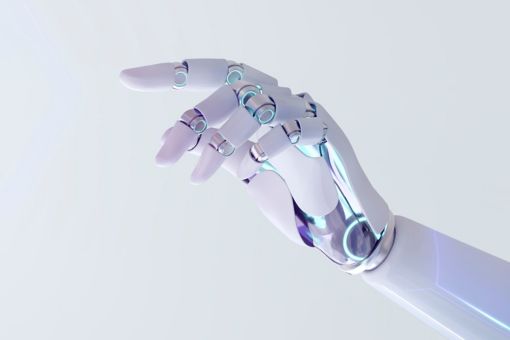While companies used to view AI primarily as a technical issue, they now need to approach it as an organizational challenge. That's the perspective of Annelies De Corte and Tania Pittoors from KPMG in Belgium.
Claiming that artificial intelligence will (radically) change businesses is no revelation. What’s new is how quickly organizations are shifting their approach to AI. “Five to ten years ago, AI was still a purely technical issue, mainly entrusted to data scientists. However, recent technological advancements have turned it into an organizational challenge, with new roles, functions, and processes emerging. The focus has expanded to include risk and change management, as AI will, in one way or another, impact every employee in the organization”, says Annelies De Corte, Director at KPMG in Belgium and an expert in data and AI strategy.
AI has become an organization-wide challenge that requires a multidisciplinary approach. Tania Pittoors, Head of People & Change at KPMG in Belgium, explains: “Creating a culture that embraces AI is essential. Managers play a key role here—they need to encourage their teams to experiment and build trust. Management should acknowledge concerns and communicate openly. Many organizations understand they need to work with AI but often struggle to explain why. This may seem like a minor detail, but it’s crucial to convincing others within the organization to embrace the change”.
AI ambassadors
Skills are just as crucial as culture, though they’re quickly overtaken by new technological developments. Pittoors notes: “In the past, you could rely on a particular skill for a while, but now continuous learning is essential. The World Economic Forum’s report on the jobs of tomorrow highlights the importance of creative thinking, tech fluency, and curiosity”.
“To help integrate AI internally, KPMG launched a network of AI ambassadors—colleagues from various departments trained in AI who share their knowledge within their teams and identify new use cases”, explains De Corte. “Being closer to their teams, these ambassadors help bring abstract concepts to life”.
Zero in on the core
Our approach to change management has evolved, as AI is proving more disruptive than past innovations. We focus on understanding fears and resistance to guide companies through the five phases of change management”, says Pittoors. “This is the first time technology has had such a sweeping impact on knowledge workers, which naturally creates resistance. It rarely replaces entire roles but often reshapes specific tasks. That’s why it’s essential to review your organizational structure and HR policies”.
De Corte emphasizes that organizations must have the confidence to integrate AI into their core processes. “A lot of companies begin by focusing on support functions such as HR or finance, but you need to take a hard look at the core of your business. This requires the right kind of courage, as it often comes with higher risks”.
This article was created in collaboration with De Tijd and L'Echo.
Contact us
Explore
Connect with us
- Find office locations kpmg.findOfficeLocations
- kpmg.emailUs
- Social media @ KPMG kpmg.socialMedia




